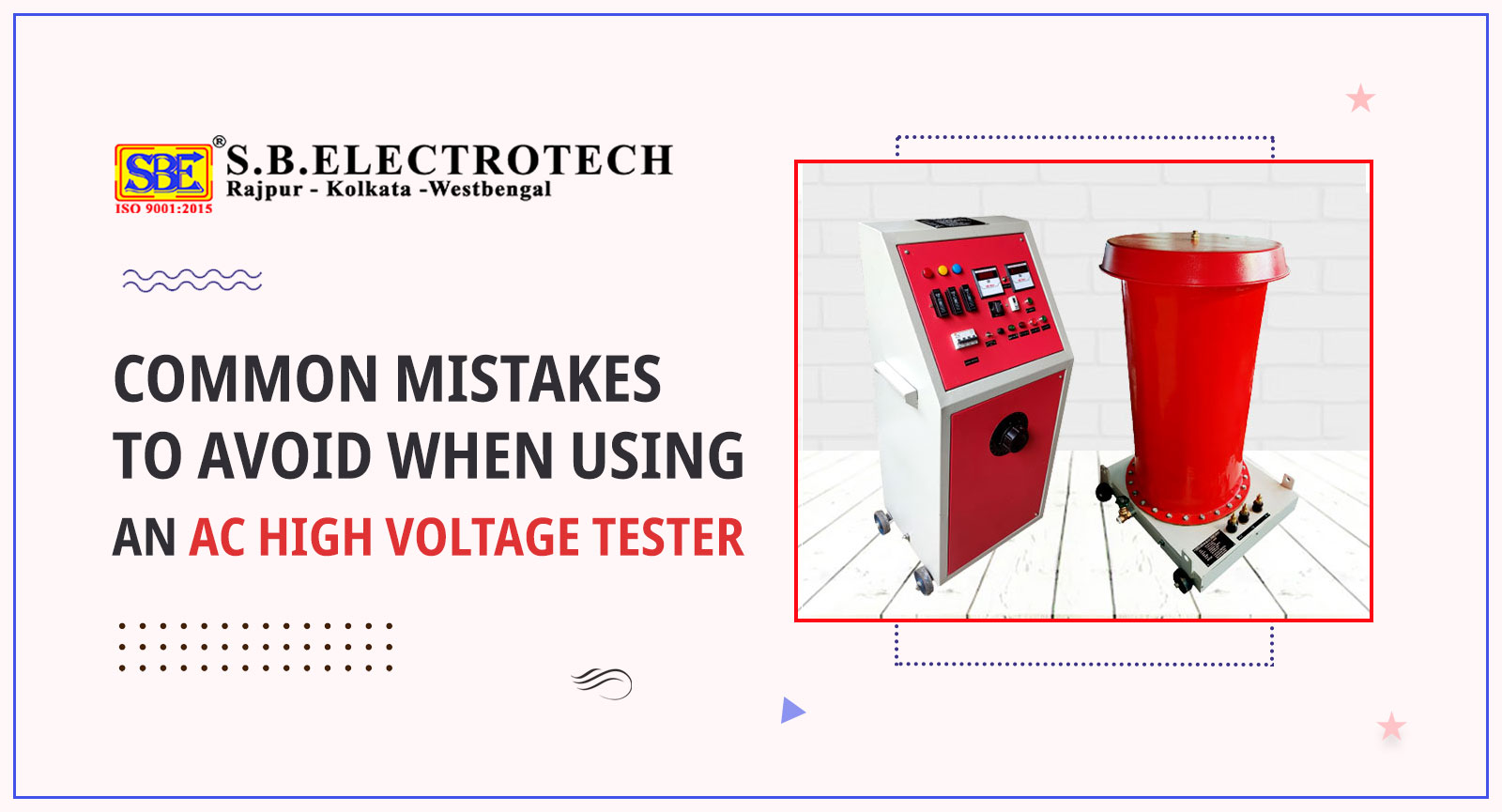When acquiring the essential methods and practices, one of the first things to consider is the possible risks of electrical testing. Whether you’re a professional electrician or a keen enthusiast, safety is critical and remains one of the most often debated subjects in the field.
In this blog, we’ve compiled a list of five common mistakes that frequently lead to harmful electrical testing conditions when using an AC high voltage tester
in the hopes of helping you become safer and more knowledgeable.
Using the wrong tool for the job
You should always use a correctly rated tool to avoid injuries at work. Every year, deaths occur as a result of preventable errors when working with electrical equipment. Making sure that your instruments have the appropriate CAT rating for the job at hand is one measure you can take to reduce risk.
The CAT rating refers to an electrical testing instrument’s capacity to withstand a voltage spike and offer a defined degree of resistance and protection. The ratings are divided into four categories: CAT I, II, III, and IV.
Each category provides a higher level of safety based on its classification. CAT I-rated instruments are designed for use with smaller electronic devices. And CAT IV-rated instruments are designed for high-energy applications.
Each instrument that requires this protection will have a specific CAT rating. It allows you to assess the tool’s fitness for the work at hand. Make sure your instrument is rated to provide the appropriate level of protection against harmful surges.
Not wearing PPE
People dislike wearing rubber-insulating gloves or arc flash PPE and equipment. It’s hot, unpleasant, inhibits movement, and slows down the entire work process — not just by wearing it, but also by choosing the appropriate PPE and putting it on and off. It can also save your life.
Troubleshooting is one of the most common situations in which workers fail to wear PPE. The logic appears to be: “I’m not really working on it; I’m just testing it.” However, according to CDC/NIOSH research, troubleshooting, voltage testing, and other similar tasks cause 24% of electrical mishaps. We tend to overlook dangers linked with “safe” jobs.
Using the cheapest equipment available.
Future-proofing can be an effective strategy to avoid dangers before they arise. Modern AC high voltage tester from top companies frequently has an assortment of safety features making them a better investment than older or less expensive alternatives.
For most consumers, pricing is one of the most important factors in making a purchase choice. However, while choosing an instrument, you should prioritize providing yourself with enough safety. Don’t settle for the cheapest alternative; instead, choose a well-reviewed and reputable brand that offers enough user protection.
Failure to follow lockout/tagout safety procedures
Lockout tagout (LOTO) is a standard safety measure that prevents harmful reactivation of energy sources at work. The LOTO technique normally entails isolating and rendering any inoperative energy sources inoperable by using a lock (such as an attachable padlock) and a tag designating the source as purposely inactive. This technique guarantees that the energy source is not accidentally turned back on while working, lowering the risk of reintroducing live current into a circuit that is being worked on.
Bad Test Leads
When doing electrical testing, using high-quality test leads is critical to safety. Typically, if your instrument was given by a reliable brand, it will include test leads with the necessary CAT rating and enough protection. However, if you want to change your leads during the life of an instrument, be sure you get appropriate replacements. Double insulation, shrouded input connections, finger guards, and non-slip design are all required qualities when purchasing new test leads.
Inadequate Training:
You must know how to use an AC high voltage tester properly before you use it. Manufacturers provide a product manual that you refer to when using a tester.
Conclusion
So, these are some mistakes you should avoid while using an AC high voltage tester. We have little control over the accident once it begins, so the best thing we can do is minimize minor errors and tighten up the way we work. If you have any queries related to this testing equipment, contact SB Electrotech now.

S.B.ELECTROTECH
S.B. Electrotech is a company that specializes in manufacturing of electrical and electronic testing and measuring instruments. With years of expertise in this field, we ensure to provide high quality, safe, and sustainable products.




